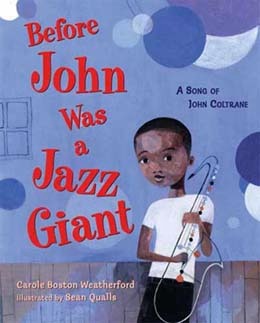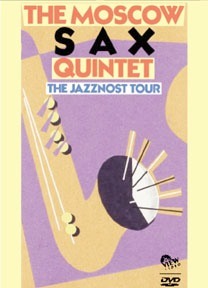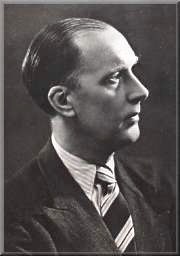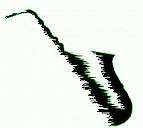Passing of another giant
Jazz great Jimmy Giuffre passed away on Thursday (read New York Times article). He would have been 87 today.
Prolific on many instruments, he will mostly be remembered for his clarinet playing and his role as one of Woody Herman's "Four Brothers" on tenor. Based on Giuffre composition of the same name which featured a new configuration within the big band. The piece was set with the an alto (played by Sam Marowitz), three tenors (Stan Getz, Zoot Sims and Herb Steward) and a baritone sax (Serge Chaloff). The emphasis of this particular piece, especially with these particular players, featured the three tenors, influenced by the Lester Young school of playing. The alternation between the individual soloists and the relaxed, free flowing, non vibrato playing gave this piece a special coloration which enthused Herman and became a trademark of his ensemble.
Here's a great clip which shows Giuffre's proficiency on multiple instruments as he moves from baritone sax to clarinet to tenor sax in a trio setting of "The Train and the River". This also highlights another of Giuffre's contribution to jazz history, the drumless trio. As Ben Ratliff explains:
A music trasher, saxophone screamer
Spent the day getting initiated to the chaotic sound world of Swedish composer and saxophonist Dror Feiler. He describes himself as a music trasher, saxophone screamer and a computer terrorist.
After viewing a few video clips on youtube and listening to mp3s of his "The Return of the Real" (which can be downloaded from his site), I can defenitely say, "he's not kidding".
He describes his music this way:
My music is a flow of sounds, noises, forces, it develops to a point where it goes beyond itself. The speed with which different sound elements follow each other, and the density with which they superimpose vertically, are so great that a sort of overload occurs, one which transcends the restlessness of arousal, like a film run through at a too high speed.
The occasional passages with tones, harmonies and sounds in a more "normal" rate can, in context, seem almost banal - a measure of the distance we have travelled in the music. The intuitive molten metal brutality of the music brings the player into the energy of a hot improvisation. A new music is created, a new speed of thinking and feeling where the intellect meets the manic raver. We experience an energy born of rapid movement, sound, noise, flow and expression. The music does something palpable to its listeners, or at least incites them to a form of action, of awakening.
Greg Caffrey, Irish composer
Here is an interesting interview with Irish composer Greg Caffrey.
You can hear some more of this interview, including excerpts of some of Caffrey's music which includes a couple of saxophone piece: Honk! and Pluck, Blow, at this site:
An Interview with Greg Caffrey at the Contemporary Music Center Ireland.
You'll find two audio files for over 25 minutes of the interview as well as a transcript of it.
Something else in the Tenor Lineup
And then we have something different for the tenor rostrum. Henry Holt and Co. is coming out with a new illustrated biography by Carole Boston Weatherford, illustrated by Sean Qualls of John Coltrane's younger years.
Before John Was a Jazz Giant looks like an interesting read.

"Young John Coltrane was all ears. And there was a lot to hear growing up in the South in the 1930s: preachers praying, music on the radio, the bustling of the household. These vivid noises shaped John’s own sound as a musician. Carole Boston Weatherford and Sean Qualls have composed an amazingly rich hymn to the childhood of jazz legend John Coltrane." (from the Publisher comments)
Some Tenor Sadness
After yesterday's Tenor Nostalgia, here is some Tenor Sadness as I hear about two excellent tenor players who have just passed away.
Monday, April 7th saw Phil Urso, 82, passed away in Denver where he settled in the 1960s after having been part of the West Coast scene for a number of years, most notably with Chet Baker and his groups.
Here are some interesting tributes about Urso and his legacy.
Saxophonist Phil Urso RIP by David at the WFIU blog from NPR at Indiana Universuty and Remembering Phil Urso (1925-2008).by Ted Gioia at jazz.com. The last site includes a youtube file of a Chet Baker big band recording.
Earlier this week, on Sunday, Donald Walden, an influential tenor player in Detroit died after his battle with cancer. He was 69. He taught at the Michigan State University, Oberlin Conservatory in Ohio, and eventually found his way to the University of Michigan.
You can read the obit from the Detroit Free Press here.
Mark Stryker notes that "Walden followed his friends to New York in 1960, where he played with Grant Green, Joe Chambers, Booker Ervin and Sun Ra, but he returned home in 1966 for more opportunities to work. He played in Aretha Franklin's band for five years and toured widely with Stevie Wonder, the Temptations and Four Tops. He played jazz, too, of course, and eventually found security as a teacher."
Some Tenor Nostalgia
Doug Ramsey on his blog Rifftides, points us to some video clips of Zoot Sims and Al Cohn dating back to 1968. Watching this bit of live TV makes me miss the good old days when TV was live and, well, alive. We don't get many occasions these days of seeing and, more importantly hearing great masters at work at their craft.
Wouldn't it be interesting to see some network invest in real established talent as showcases instead of the "America's Got Talent" pablum which they seem so intent on feeding their public.
Anyway, Sims and Cohn show off their stuff in this performance of Burt Bacharach's "What The World Needs Now Is Love" followed by Cohn's "Doodleoodle" with Stan Tracey on piano, Dave Green on bass and Phil Seamen on drums.
Nice to know that the internet can serve up such great archives.
Some not so new music
I was recently pointed to a web site about an early pioneer of the saxophone: Ali Ben Sou Alle.
Interesting figure who was active in the 1850-1860's. Born Charles-Valentin Soualle, he received a first prize in Clarinet at the Paris Conservatory in 1844. After the 1848 Revolution, he found himself exiled to England where he took up the saxophone. He added the single octave key mechanism (the modern system which still exists today). He became known as a virtuoso of the instrument and travelled world wide introducing the sax to Australia, New Zealand, Java, China and India. He finally settled in Mysore, becoming the director of the Royal Music for the Maharadjah. That is where he converted to Islam and changed his name to Ali Ben Sou Alle.
Around 1860, Soualle returned to France.
Thanks to Paul Wehage for his research and his work uncovering and publishing the works of this intriguing personality.
You can find some of Ali Ben Sou Alle's music published by Musik Fabrik as well as a longer biographical sketch at this link: http://www.classicalmusicnow.com/absa.htm#French.
January 2008
Otto Joachim receives an homage
German-born Canadian composer Otto Joachim, received a special homage during the gala of the Prix Opus in Montreal\s Salle Claude-Champagne.
Joachim, also a violinist, founded the Montreal String Quartet and the Montreal "Ensemble de Musique Ancienne" (an early music group). During the evening, his son, virtuoso guitarist Davis Joachim, performed one of his father's pieces.
Joachim, who is 97 years old, was in attendance. Due his advanced age, they had to give his award at his seat.
Oh! and by the way, Joachim has written a saxophone quartet (there had to be a sax connection). Entitled Interlude, it is a brief little piece, written in 1960. The original score is available at the Canadian Music Center.
![]()
Cantankerous, intimidating... not here
A rencent posting by Doug Ramsey on his blog Rifftides, talks about Ben Webster's personality, how "... Webster could be cantankerous, intimidating; one of his nicknames was The Brute." Then he then sends us to this beautiful youtube clip showing Webster performing Perdido with the late Oscar Peterson at the piano which definitely shoes Webster more gentle side.
That made my day!!
Tour alert
Something to look out for. The Saxophone Ensemble of the Paris Conservatory under the direction of Claude Delangle will be touring North America between February 7 and 22, 2008. Cities they are scheduled to visit include Boston, Lansing, Evanston-Chicago, Minneapolis and Los Angeles.
Here is a link to a description of the ensemble (in French).
New Works - New WIKI
I have just set up a new WIKI as a ressource to keep us informed of any new pieces written or performed for saxophone.
For those of you unfamiliar with a WIKI, it is an interactive web site which can be edited by many people. The best example of this is Wikipedia.
Well, now we have our own wiki site.
What I propose is a collaborative of all saxophonist and composers who wish to keep us informed of new pieces which are being created. As we all now, the saxophone repertoire has grown exponentially in the last decades and although books such as Jean-Marie Londeix's A Comprehensive Guide to the Saxophone Repertoire are a great ressource, they become outdated the minute they hit the bookstore.
Enter
The internet can serve as a better medium to keep us abreast of all the latest developments in our field. And I feel a Wiki is the ideal setting, since no one person needs to be the sole provider of information. The whole community can participate and become the ressource.
Oratorio by Douglas J. Cuomo
I was listening to the archives of the New Sounds radio show, which is broadcast and webcast every evening on WNYC. On this particular show, music draw from Hindu scriptures was being featured. As one would expect, Philip Glass's Satyagraha was featured. But weaved between two excerpts from Glass's opera, I got to hear an oratorio by composer Douglas J. Cuomo.
The name didn't ring a bell, as it might not for you either. But most everyone has heard his music in one fashion or another. He has written some TV music for such shows as Sex and the City and Homicide: Life on the Streets.
What grabbed my attention on the New Sounds program was his Arjuna's Dilemma. This is a fascinating compendium of Hindu flavored sounds with modern western music. In the mist of this, an improvising saxophone weaves its way in the music.
On his website, Cuomo informs us that Arjuna's Dilemma will be touring in the 2008-09 season, with specific dates and locations to be announced. Something to look for and to look forward to. You can also hear excerpts from the work on the composer's site as well as the above-mentioned New Sounds site.
Saxes and the Orchestra
One of my special interest is the role the saxophone has in the classical symphony orchestra. Most people only know of a few pieces which have made their way into the mainstream with the saxophone playing a role in this formation.
Adolphe Saxe had the use of the saxophone in the orchestra in mind when he first designed our favorite instrument. He even built a full family of F and C saxophones just for this purpose. His thinking was that the Bb/ Eb saxes would be able to adjust more easily to the tunings of the wind bands and the C/F instruments would work well with the orchestral instruments.
Well, as we all know, even the best laid plans don't always work out. I'll discuss some of the reasons why this didn't happen in later posts.
We all know about Ravel's Bolero, Moussorgsky's Pictures at an Exhibition or Gershwin's Rhapsody in Blue, just to name the most obvious. But composers of all stripes have been enhancing their orchestral palette by adding the beautiful and expressive sounds of the saxophone family. Where most of you may be aware of a few dozen pieces of this ilk, I've collated information for close to 3,000 such pieces. You can expect my discussing some of these in the future.
Moscow Saxophone Quintet DVD
The New York based V.I.E.W. Video have just released a new DVD by the Moscow Saxophone Quintet. The Quintet is actually a larger group, in a Supersax style format, which produces high level energy in a wide range of material, from Fats Waller to the Beatles, and Gershwin to Charlie Parker. This seems like an exciting document to get.

The Moscow Sax Quintet: The Jazznost Tour
You can get a taste of what it's all about with a preview clip which is available on the V.I.E.W. web site.
Havel, Joy, Versanaud and EISB
I've added new pages to the Composers and Performers lists.
You can now find out about French composer and saxophonist Christophe Havel who is based in Bordeaux and is a member of the Proxima Centauri ensemble.
You'll also find a new page on French composer Jérôme Joy who is based in Nice, France.
Also new to the list is Joël Versavaud, another French sax player, based in Marseille.
I've also started a page about the Ensemble International de Saxophones de Bordeaux, which Jean-Marie Londeix founded in the 1980s. This page will be an ongoing project, since many players, mostly students of Londeix, have performed in the ensemble and a lot of music for large saxophone ensemble has been commissioned for the group. Another part of the Londeix immense legacy,
I Got Rhythm Variations
1934, 74 years ago, George Gershwin premiered his "I Got Rhythm" Variations at Symphony Hall in Boston.
Why should this be of any interest to sax players?
Just part of the history of the instrument. Gershwin was one composer who didn't hesitate using saxophones in his symphonic works.
We should celebrate his music as well as that of all the other composers who have been enticed into adding the beauty of the saxophone's tone and its flexible dexterity to the repertoire of the symphony.
We have to remember that Adolphe Sax's original intent was for the saxophone to find a home in the symphony.
John 'Buzz' Jones
My net meanderings have led me to the site of John 'Buzz' Jones, a composer and jazz bassist based in Gettysburg, PA. A sampling of his work can be heard on his web site : http://www.buzzjones.net/Audioclips.htm
Delvincourt, 120 years ago
Guy Lafitte recordings
Today we celebrate Claude Delvincourt's 120th anniversary.

Delvincourt was born in Paris and died in Italy in April 1954. Best know in the saxophone community for his Croquembouches which many a sax student played in their school years. Some of the movements were recorded by Jean-Marie Londeix and can be found on the recording in the Amazon.com link.
Also born on this date is French jazz tenor sax player, Guy Lafitte (b. 1927), and Boston native Jane Ira Bloom (b. 1955),
New year - new discoveries
First, I'd like to wish everyone a great new year.
I haven't been too active over the course of the last month. But with a new year comes new resolutions. Part of mine is to be more active with this blog.
So to start the new year on the right foot, I've added a few items in my composer and performer lists.
Among these are a new page for Anthony Braxton. One of the saxophone world's most prolific composers and performers, he is a daunting personality to explore, whether you approach him from a classical of a jazz perspective. You'll find several links to some interesting documents about him, including some directly to his site.
From another generation, I've just discovered a Spanish saxophonist named Agusti Martinez. Part of the new avant-garde scene in Barcelona. You'll find links to his myspace page where you can hear a sampling of his work.
A third addition to the site is Frank Macchia. He is a Grammy nominated composer/orchestrator who has worked on several feature films and TV programs. Some of them you might have heard of like Lost or Superman Returns. I've just heard some of his original works which includes some works for saxophone and orchestra. Oh, and by the way, he is also a sax player.
